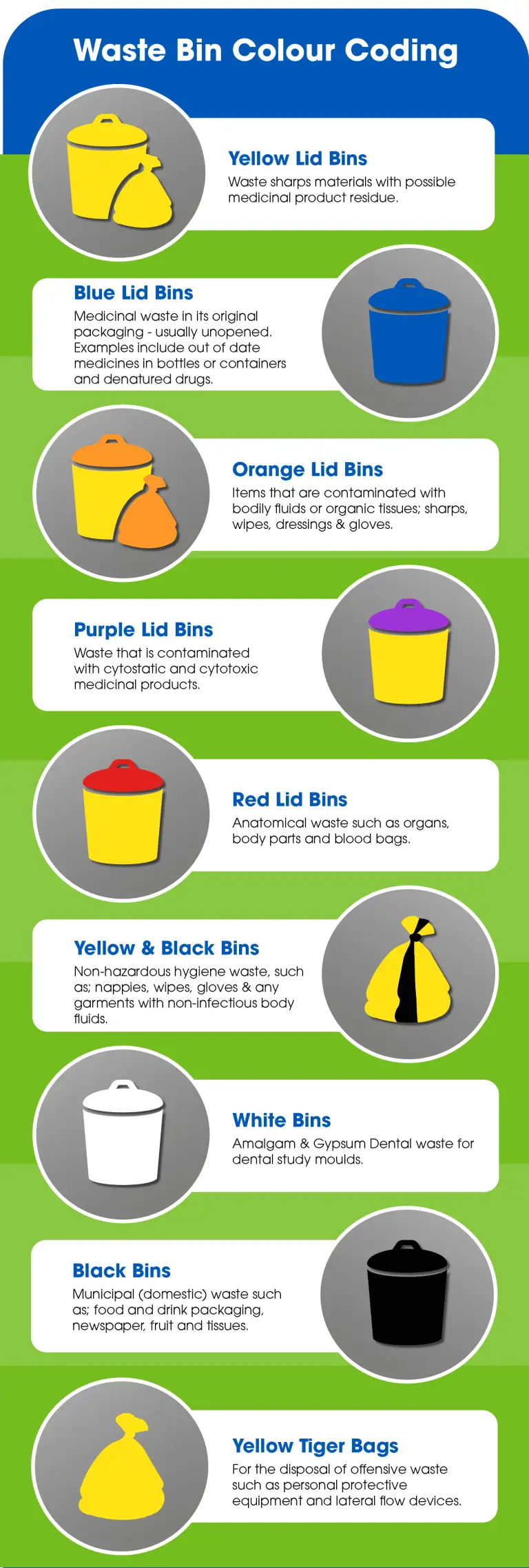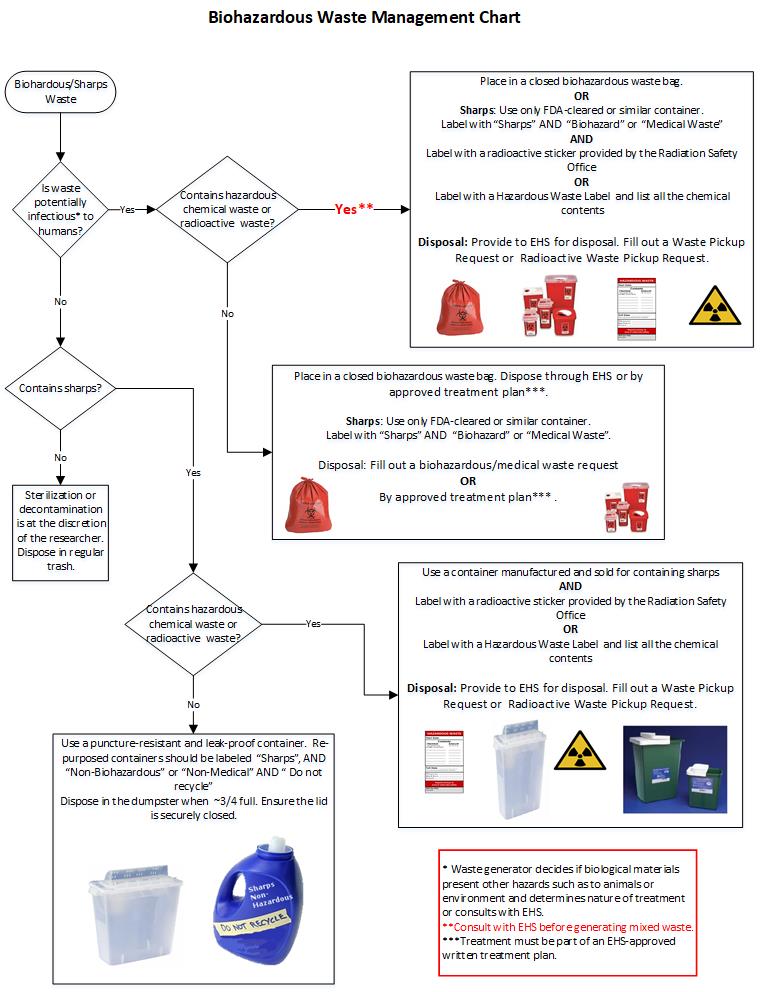Tailored Medical Waste Disposal Service: Fulfilling Health Care Compliance Requirements
Ensuring Safe Handling and Disposal of Medical Waste
Guaranteeing safe handling and disposal of clinical waste is of paramount significance in health care setups. Incorrect management of clinical waste can pose significant dangers to the atmosphere, public health, and healthcare workers. This demands adherence to strict standards and methods for its safe handling and disposal. In this introduction, we will explore the relevance of correct clinical waste monitoring, the dangers connected with inappropriate handling and disposal, along with the guidelines and techniques that can be executed to ensure its safe disposal. In addition, we will certainly talk about the value of training and education for medical care experts in order to keep a secure and tidy medical care atmosphere. By adhering to these methods, we can successfully alleviate the prospective risks connected with clinical waste.
Importance of Correct Clinical Waste Management
Appropriate clinical waste monitoring is of utmost importance in making sure the safety and wellness of health care specialists, individuals, and the basic public. Medical waste refers to any waste generated by healthcare facilities throughout the medical diagnosis, treatment, or immunization of humans or pets. This waste can posture significant health dangers if not taken care of and gotten rid of appropriately.
Among the key reasons appropriate clinical waste administration is critical is to protect against the spread of contagious conditions. Clinical waste, such as used needles, contaminated dressings, and biological materials, can lug hazardous pathogens. Otherwise taken care of and gotten rid of appropriately, these pathogens can be sent to healthcare workers, people, waste handlers, and even the public, leading to the possible episode of conditions.
Furthermore, correct medical waste management helps protect the environment - medical waste disposal. Clinical waste includes hazardous products, including chemicals, pharmaceuticals, and radioactive compounds. When not managed appropriately, these compounds can infect dirt, water bodies, and the air, presenting a considerable risk to ecological communities and public wellness
Moreover, efficient clinical waste monitoring ensures conformity with local regulations and global standards. Federal governments and regulative bodies have developed standards and procedures to guarantee the safe handling, storage space, transport, and disposal of medical waste. Sticking to these laws is important to avoid lawful consequences and maintain the reputation and integrity of healthcare facilities.
Dangers of Improper Handling and Disposal

If medical waste is not properly disposed of,Clients can additionally be exposed to these contagious conditions. If infected needles or other sharps are not disposed of in assigned puncture-proof containers, they may unintentionally prick patients, leading to possible infections. If medical waste is not set apart effectively, there is a risk of cross-contamination in between different kinds of waste, further boosting the chances of illness transmission.
Improper disposal of clinical waste can likewise have harmful impacts on the setting and the public. If medical waste is not treated and dealt with properly, it can contaminate water sources, soil, and air, resulting in the spread of conditions and toxins. This can have long-lasting effects on environments and public wellness.
Guidelines for Safe Handling of Medical Waste
Carrying out efficient protocols for the safe handling of clinical waste is important in guaranteeing the protection of medical care experts, patients, and the general public. These guidelines are crucial in reducing the risks linked with the handling and disposal of medical waste, such as infections, injuries, and environmental air pollution.
Firstly, health care facilities should develop a thorough waste monitoring plan that follows local, national, and global regulations. This plan needs to consist of clear instructions on waste segregation, product packaging, labeling, transportation, and storage. It is important to separate various kinds of waste, such as sharps, contagious products, drugs, and non-hazardous waste, to avoid cross-contamination and promote risk-free disposal.
Furthermore, medical care personnel must receive detailed training on correct waste handling methods. They need to be enlightened on the prospective threats of medical waste, the ideal usage of personal protective devices (PPE), and the appropriate treatments for handling, transporting, and throwing away various kinds of waste.
Moreover, health care centers must regularly check and examine their waste monitoring techniques to guarantee conformity with standards. This consists of conducting routine assessments, reviewing waste handling treatments, and offering comments and training to team member.
Reliable Methods for Garbage Disposal
To make certain the secure handling and disposal of clinical waste, it is vital to utilize effective techniques for garbage disposal. Clinical waste can pose considerable risks to public health and wellness and the setting otherwise handled and taken care of properly. Consequently, healthcare centers and waste monitoring organizations need to carry out appropriate strategies to minimize these risks.
One reliable approach for waste disposal is partition. It entails dividing various types of clinical waste based upon their characteristics. Segregation enables the correct treatment and disposal of each waste category, lowering the potential for contamination or damage. Healthcare facilities must give clear standards and training to team participants on exactly how to segregate waste correctly.

In addition, health care facilities should team up with accredited waste monitoring firms to guarantee proper disposal of clinical waste. These companies have the know-how and tools called for to securely handle and dispose of medical waste in compliance with policies and finest methods.
Training and Education for Healthcare Professionals
Healthcare professionals play a vital function in making certain the secure handling and disposal of clinical waste through thorough training and education. It is essential for doctor to have a deep understanding of the prospective risks related to medical waste and the proper methods for its monitoring. By obtaining appropriate training, medical care specialists can reduce the prospective transmission of contagious diseases, avoid ecological contamination, and secure both themselves and the public.

Additionally, training programs must emphasize the usage of personal protective devices (PPE) and proper hand health techniques when taking care of clinical waste. medical waste removal. Medical care specialists should know how to correctly get rid of and make use of of PPE to shield themselves from possible exposure to dangerous products. They must additionally be educated on the value of normal handwashing and the correct use hand sanitizers to lessen the spread of transmittable conditions
Continuing education and normal updates on clinical waste administration methods are essential for healthcare specialists. As guidelines and guidelines progress, it is vital to keep health care companies educated about any type of modifications in protocols and ideal practices. This will certainly make sure that they stay up-to-date and preserve a high standard of safety in handling and getting rid of of medical waste.
Final Thought
In conclusion, appropriate handling and disposal of clinical waste is crucial to make certain the safety of healthcare professionals, patients, and the setting. By adhering to these techniques, we can reduce the prospective risks associated with medical waste.
Medical waste refers to any type of waste created by health care centers during the diagnosis, therapy, or booster shot of pets or human beings. If clinical waste is not segregated effectively, there is a threat of cross-contamination in between various types of waste, further raising the possibilities of disease transmission.
It is essential to divide different types of waste, such as sharps, contagious products, pharmaceuticals, and non-hazardous waste, to stop cross-contamination and advertise risk-free disposal. WasteX Medical Waste Disposal.
To make certain the risk-free handling and disposal of clinical waste, it is necessary to use efficient techniques for waste disposal. Additionally, healthcare centers should develop a routine waste collection and transportation routine to avoid waste buildup and lessen the danger of crashes or contamination.